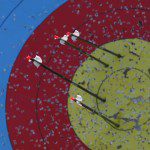Most people view the world as consisting of a large number of alternatives. Futures research evolved as a way of examining the alternative futures and identifying the most probable. Forecasting is designed to help decision making and planning in the present.
To handle the increasing variety and complexity of managerial forecasting problems, many forecasting techniques have been developed in recent years. Each has its special use, and care must be taken to select the correct technique for a particular application. The manager as well as the forecaster has a role to play in technique selection; and the better they understand the range of forecasting possibilities, the more likely it is that a company’s forecasting efforts will bear fruit.

The selection of a method depends on many factors—the context of the forecast, the relevance and availability of historical data, the degree of accuracy desirable, the time period to be forecast, the cost/ benefit (or value) of the forecast to the company, and the time available for making the analysis.
Forecasting is a statement pertaining to the future value of a variable of interest. Its crucial for good forecasting to be reliable, cost effective, simple and concise. Its very important for a forecast to be correct and that their be as few errors as possible.
Of the four choices (simple moving average, weighted moving average, exponential smoothing, and single regression analysis), the weighted moving average is the most accurate, since specific weights can be placed in accordance with their importance. The other methods make assumptions, such as an average, straight line, or exponential curve. The weighted average may be modified to any form. If a long time span is taken, however, the weighted average can be cumbersome to use. In addition, as time periods pass, the user most likely would like to change the weights. This would add to the difficulty of using the techniques for a large number of applications such as forecasting demand for inventory items.
Be the first to comment on "Which forecasting technique would you consider the most accurate? Why?"